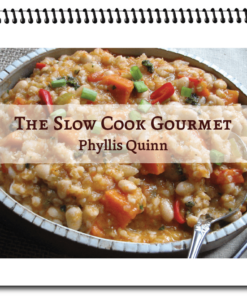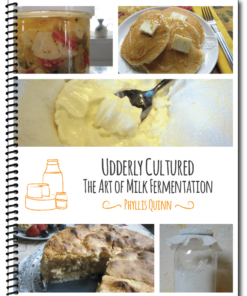Many years ago, I asked my Ireland-born mother-in-law why she didn’t make an Irish beef stew.
Her answer was that beef wasn’t plentiful in County Kerry, where she grew up. They had pigs and sheep and lots of fish (which, ironically, Mary Clifford Quinn did not like.) But beef, and therefore roasts and steaks, were rare and to be relished as a feast for Christmas and holidays.
That said, there was always pork—and there’s plenty of it in a dish called Irish Coddle, sausage and bacon in a potato stew that comes from the nearby town (actually, the big city) of Dublin. The word “coddle” comes from the French verb caudle, which means to “gently boil.” That’s because coddle is traditionally cooked slow and low (300°F) in the oven for hours, which produces fabulous herbal aromas. Ah, that explains the fresh parsley and thyme.
I’ve always loved the stories my mother-in-law told of her youth, especially of romantic evenings walking hand in hand with her beau in the peat bogs to collect fuel for the evening fires. There was no central heat, so every room had a fireplace. But the finest of them was reserved for the parlor in the front of the house. Mary’s face glowed when she talked of the way they did things back then—like feeding her pet pig or fishing the local jetty for the morning breakfast snapper. I could listen to the lilt of Mary’s native Celtic tongue and her flowery, sometimes abundant, use of words for hours.
Though this recipe was favored by the family, Mary said they seldom made it for company. I don’t understand that, since it is most delicious, as you will see.
Here’s the recipe, just in time for St. Patrick’s Day festivities!
Irish Coddle (Dublin Pork Stew)
Chef’s note: This dish is beyond tasty. Potatoes flavored with bacon and thyme will fragrance your kitchen in a most pleasant way. For me, it brings back memories of more than fifty years with my husband and my children now all grown up. I hope you enjoy it as much as we did. Happy St. Patrick’s day to you all!
Ingredients
1½ lbs. thick-cut Irish bacon, cut into 1-inch pieces
1½ lbs. Cumberland sausage (breakfast sausage with sage and thyme), cut into 1-inch pieces
2 large onions, sliced thinly
½ cup warm water
1 cup fresh parsley leaves, chopped (divided)
Pinch of salt
1 teaspoon fresh thyme, or a pinch of dried thyme
1 teaspoon (or more) fresh, coarsely ground black pepper
3–4 lbs. russet or Yukon gold potatoes, peeled and quartered
½ cup Irish stout like Guinness
Irish soda bread, for serving
Instructions
- Preheat oven to 300°F. In a large Dutch oven, brown the bacon and the sausage until bacon renders, about 10 minutes.
- Stir in the onions, scraping up the brown bits from the bottom of the pan with a wooden spoon. Cook until onions are fragrant and soft.
- Add warn water and half the parsley, Next, add salt, thyme, and black pepper. Add potatoes in a layer over the meat and onion mixture. Add stout.
- Bring mixture to a boil, but do not stir. Cover pot and place in oven. Cook until onions are caramelized and the liquid has reduced, which takes about 2 hours.
- Add remaining parsley and serve with thick slices of toasted, buttered Irish soda bread.
Image from iStock/sumnersgraphicsinc.




